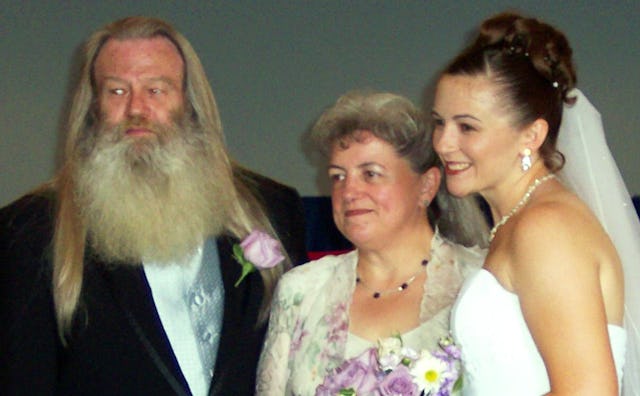Turning 40 Without My Parents

I’ll be turning 40 in a few short months and, to my surprise, the two people who were there at my debut won’t be there to celebrate my four decades. Both of my parents died while I was in my late 30s. So, at a time when some of my friends are congratulating their moms and dads on retirement or considering moving them closer so they can care for them, I’m exploring what it’s like to be the oldest generation of my family.
Here’s what I’ve learned so far:
1. Go ahead and make your plans—but you have absolutely no idea what is going to happen next. Five years ago, I was months pregnant with my second child and starting a great new job that would be my lifeline out of the newspaper business. I wasn’t thrilled about living an eight-hour drive or expensive airplane flight so far from my parents and sisters. Still, I figured I would get that fixed when I could. Then, in fall 2010, my mother was diagnosed with Stage IV peritoneal/ovarian cancer. We didn’t know it then (because of course, she didn’t tell anyone), but doctors told her she had two years. Despite the amazing stories you hear, doctors sometimes know what they’re talking about. She died two years and five months later in April 2013.
Afterward, Dad spent a year bouncing back and forth between trying to be the grandpa and dad she made him promise he’d try to be and reverting back to the unpredictableness and narcissism that had always made loving him difficult. But 65 years of hard living and ignoring medical problems takes its toll, and he died 14 months after my mom.
At 35, I thought I had a decade or more left with both of them, but I was taking so much for granted.
2. Sometimes it really is too late. Sorry to be crass—but if you’re acting like a jerk, and you know you’re acting like a jerk but you can’t seem to bring yourself to quit acting like a jerk, CUT IT OUT. I have made many visits over the past two years to a very wise counseling professional. The week after my dad died, she suggested that I shouldn’t feel bad if his death brought me some relief. For years I’d been hoping in the back of my mind that my dad and I would someday have the kind of relationship friends seemed to have with their dads—you know, the ones where most encounters don’t end in one person leaving the room to avoid World War III. Today, I know that hoped-for relationship is never, ever going to happen.
I miss my dad’s kindness to his grandchildren, his quick wit and his gravelly voice over the phone, but I don’t miss that feeling of failure and frustration that accompanied every fight. I wish it had been different and I think he did too, but we don’t get to go back. If you still have the chance and you can figure out a way, fix what you can.
© Courtesy Traci Peterson
3. I had it pretty good. Whenever I start to feel sorry for myself about anything, I try to think of the saying “Someone else is happier with less than you have.” I think the sentiment has truth here (though I’m not sure happy is really the right word). My situation is not a tragedy. I had parents until I was in my mid-30s. They walked me down the aisle and held my babies in their arms. That is pretty darn awesome compared to the cards some others are dealt. I am completely aware of this. I have so much respect for people who triumph over the childhood loss of a parent or other situations that I can’t even imagine, like the loss of a spouse or a child. They are the ones who should be giving the advice.
4. Be good to yourself. This is another pearl from the aforementioned wise counseling professional. I don’t know when I started to believe that the person under the most stress or claiming the least hours of sleep wins at adulthood. I know I’m not the only one thinking that. If you’re working 70 hours a week and it gives you purpose and fulfillment, more power to you. Or, if you don’t particularly care for your job but your family time and financial achievements make it worthwhile, good for you. But, if you’re slogging through the week and a little voice inside your head is consistently whispering (or maybe shouting), “This is not the life you want,” I urge you to take a look at what small or big changes would improve your direction. Earlier this year, I was lucky enough to change gears from a full-time job to freelance writing and editing. It hasn’t always been smooth sailing. But, six months later, I feel more certain I’m in the right place.
Though it may be the stuff of sentimental Facebook posts and come-to-Jesus pamphlets, there really is no guarantee of tomorrow. I’m trying to live accordingly.
This article was originally published on